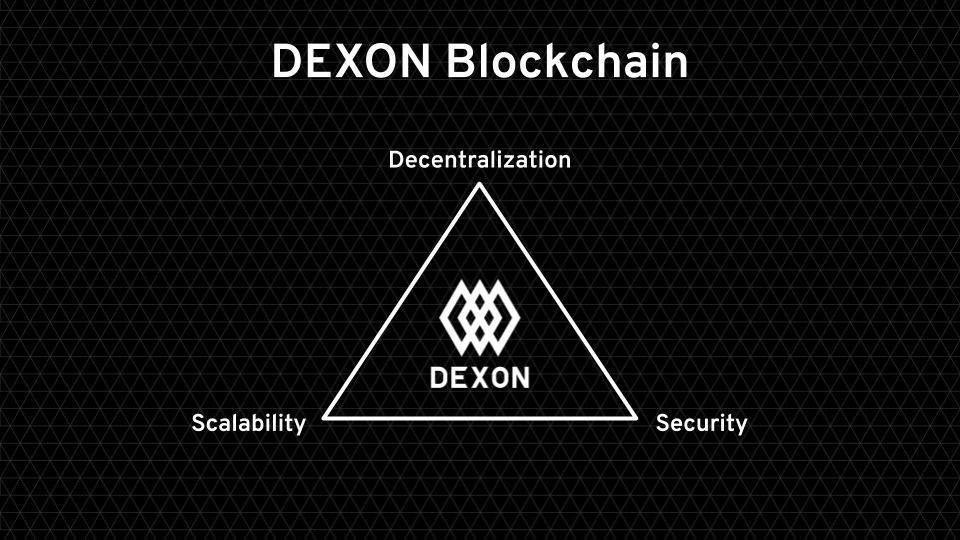DEXON – DLT which solves problems inherit in other blockchains

The advent of blockchain showed the world how decentralization can bring speed to transactions. While the coins and tokens provided agility and speed to transactions compared to the traditional methods, each of them had their own pace. Each coin including Bitcoin and Ethereum have their own limitation because of their consensus algorithms which were inherent in them hence their speed varies.
Transactions speeds may vary due to network congestion and the fee provided
People who understand blockchain and its algorithms are fairly aware that all projects and their blockchains have different transactions speed. Usually to measure project speeds one needs to analyze two general criteria- 1) time it takes to get from one wallet to the other — the confirmation time, 2) the number of transactions per second (tps), determining scalability.
While transaction speeds usually vary over a period of time due to congestion and the fee that is charged for making the transaction, it often leads to conflicting information on actual transaction speeds. While transactions speed keeps evolving with upgrades and forks, the difference between the two project’s transaction speeds is quite stark. While many projects have their own Mainnet that attracts traffic, a few projects with testnet too have shown their speed capabilities.
If transaction speed was the only way to determine the project’s effectiveness, the following list would be really helpful to identify the right project. Following is the list of various payment platform and their transaction
- Visa stated in 2010 that its has reached 24,000 tps which now after almost a decade has reached 56000 tps
- PayPal can handle around 193 transactions per second.
- Ripple can handle 1,500 tps and takes around 4 seconds to confirm. The team claims 50,000 tps.
- Stellar (a fork of ripple) can handle 1000 tps takes 2–5 seconds to confirm.
- Bitcoin Cash can handle 61 tps and takes 60 minutes to confirm.
- Litecoin can handle 56 tps with Segwit and takes 30 minutes to confirm.
- Bitcoin can handle 7 tps and takes 60 minutes to confirm. It currently averages 3 tps.
- Ethereum can handle 25 tps and takes 6 minutes to confirm. It currently averages around 15 tps.
- IOTA can handle 1500 tps and takes 2 minutes to confirm. However, real-time stress tests show it is currently handling 3 tps.
- Monero takes about 30 minutes to confirm as per Kraken. Transaction speeds are unknown, though estimated to be around 4 tps.
- DASH can handle 28 tps and takes 15 minutes to confirm. Average tps is about 10(a much lower figure is claimed by the DASH team in terms of confirmation times).
It is also worth bearing in mind that Visa had about 60 years to develop its network, and blockchain companies are likely to develop at a much quicker pace. This has already been demonstrated and there are many projects and features under development and being actively deployed.
DEXON has capabilities to reach 1M+ TPS with all transactions finalized.
DEXON claims to be the fastest blockchain available on the market and aims to guide mass adoption within the banking industry and real-world application requirements. According to the team, the blockchain’s consensus can help DEXON reach 1M+ TPS with all transactions finalized with under 1 second of latency with provably secure Byzantine fault tolerance.
What makes DEXON standout is that, instead of using Proof of Work, like Bitcoin which is very costly, DEXON uses innovative Proof of Participation (PoP) which avoids both the huge cost of Proof of Work and the miner centralization issues. Proof of Participation is the most decentralized mining reward model in the market as the validator nodes operate fully compliant to the consensus protocol to keep the network safe and sustainable.
DEXON’s mainnet was launched on April 25, 2019.
This is a guest post, Coingape doesn’t support the views of the author. they are purely author’s views. Coingape.com does not hold any responsibility for your damage or loss.
Recent Posts
- Crypto News
Breaking: Rep. Max Miller Unveils Crypto Tax Bill, Includes De Minimis Rules for Stablecoins
Rep. Max Miller is circulating a 14-page draft of a proposed crypto tax bill in…
- Crypto News
XRP Holders Eye ‘Institutional Grade Yield’ as Ripple Engineer Details Upcoming XRPL Lending Protocol
Ripple engineer Edward Hennis has provided key details about the upcoming XRP Ledger (XRPL) lending…
- Crypto News
Michael Saylor Sparks Debate Over Bitcoin’s Quantum Risk as Bitcoiners Dismiss It as ‘FUD’
Strategy co-founder Michael Saylor earlier this week commented on the risk of quantum computing to…
- Crypto News
Ethereum Faces Selling Pressure as BitMEX Co-Founder Rotates $2M Into DeFi Tokens
Ethereum is under new sell pressure after a high-profile crypto trader sold his ETH assets…
- Gambling
Best Crypto Casinos in Germany 2025
If you’re a German gambler tired of strict limits and slow payouts at locally licensed…
- Crypto News
Tom Lee’s Fundstrat Warns Clients Bitcoin Could Fall to $60,000 Despite His ATH Public Forecast
Top asset manager Fundstrat has advised its private clients to expect a pullback in Bitcoin…